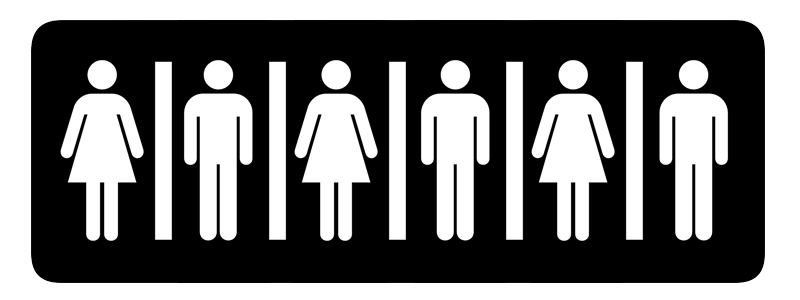
Dr. Martin Luther King, Jr. is frequently noted to have said that eleven o’clock on Sunday morning is the most segregated hour of the week. It probably holds true for racial segregation among churchgoers, but if you’re looking for the pinnacle of segregation based on gender or sex, it’s all about location, location, location — it’s the public bathroom.
Public toilets give symbolic structure to the dispute over citizens’ rights to gender self-determination. Historic, anthropologic, sociologic, archaeologic, architectural, legal and cultural layers so strongly complicate modern attitudes and ideas about public toilets that they’re a convenient scapegoat for reasons to discriminate against gender non-conforming individuals.
Our complex mindset toward bathroom activities means it’s easy to make people uncomfortable by exaggerating the barriers to creating safe and dignified public toilet facilities for all citizens. Although many places are beginning to create gender neutral restroom facilities, public discourse reveals a common theme of anxiety and dispute. It’s especially impassioned when the focus shifts to public schools.
The power of story: Help support the dignity of all citizens.
Story is one of the most powerful pathways to human connection. The Toilet Project aspires to harness the power of story to show safe, comfortable, gender-neutral public bathrooms that already exist throughout the world. It’s time to celebrate the bathroom!
You can help by sharing success stories. If a business or public space in your community has a bathroom that provides a pleasant, safe, dignified place that serves all genders without discrimination, I’d love to hear from you.
Send a high resolution photo and a brief description of the bathroom to ShiftingParallax@JudiHerring.com. Feel free to brag about the business owners and their staff who infuse human compassion into commerce! I’ll feature a number of the stories in my blog — the more creative the story, the more likely it is to be featured! Countless businesses create welcoming discrimination-free experiences for their patrons, so let’s put them in the spotlight as models of how to do business right.
